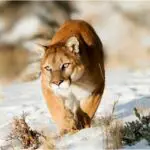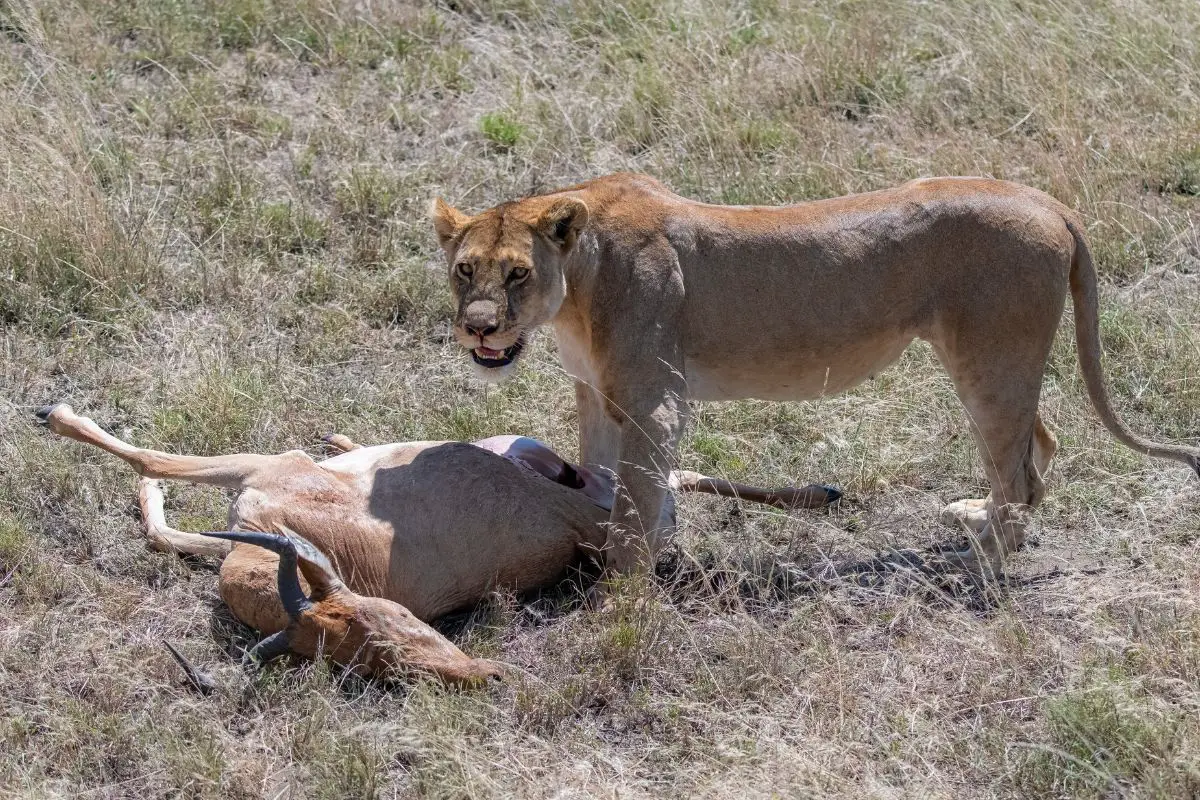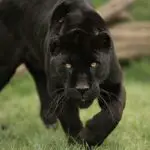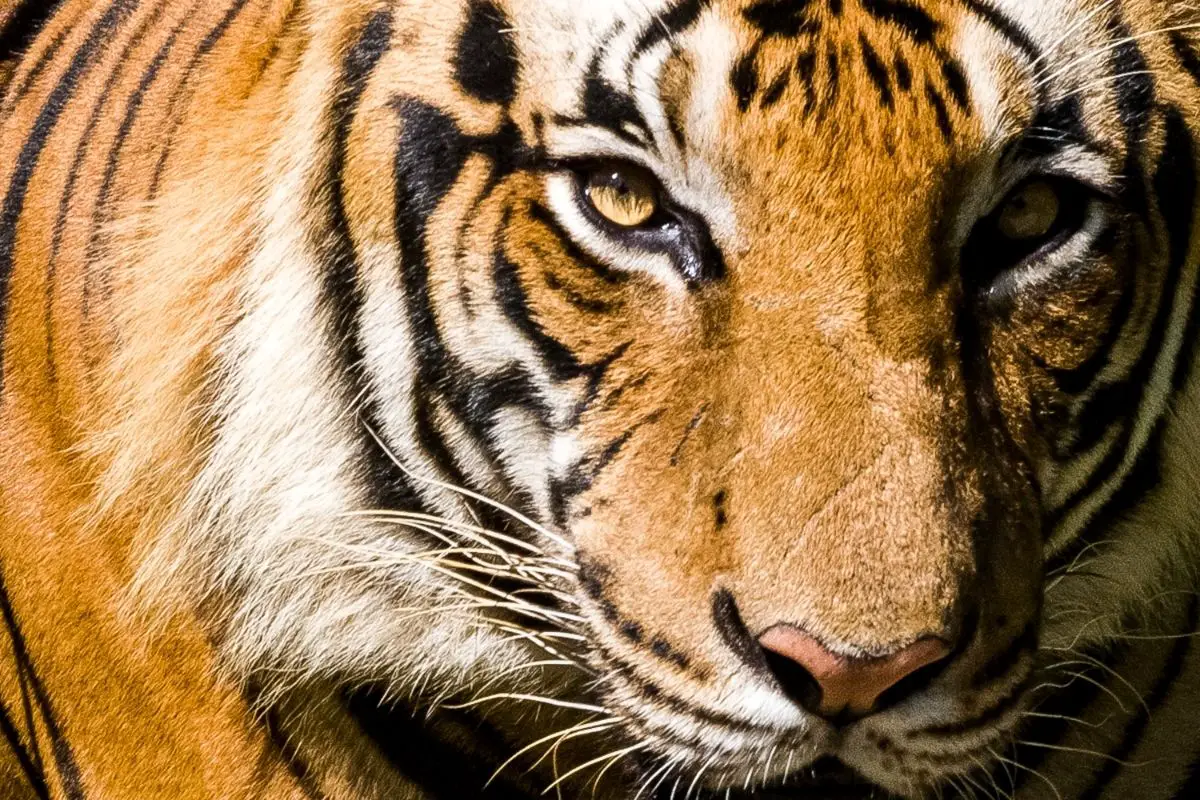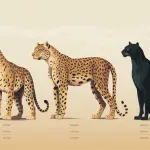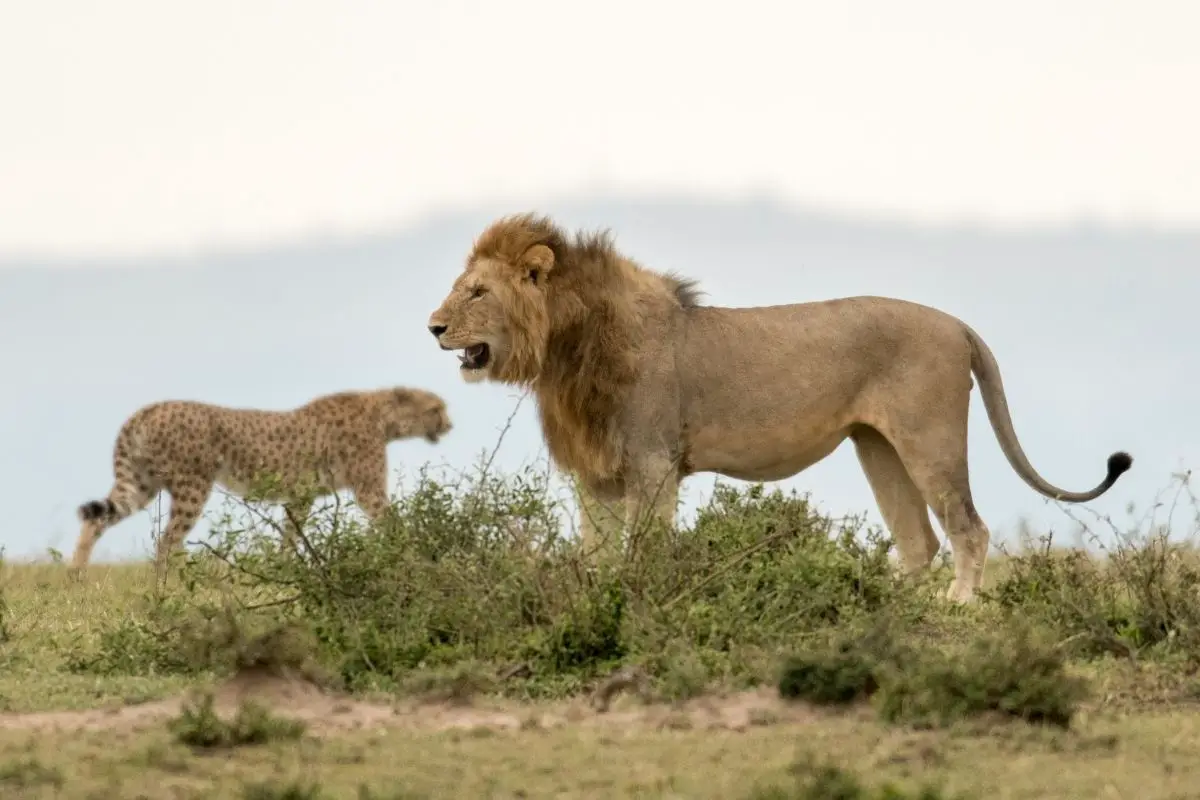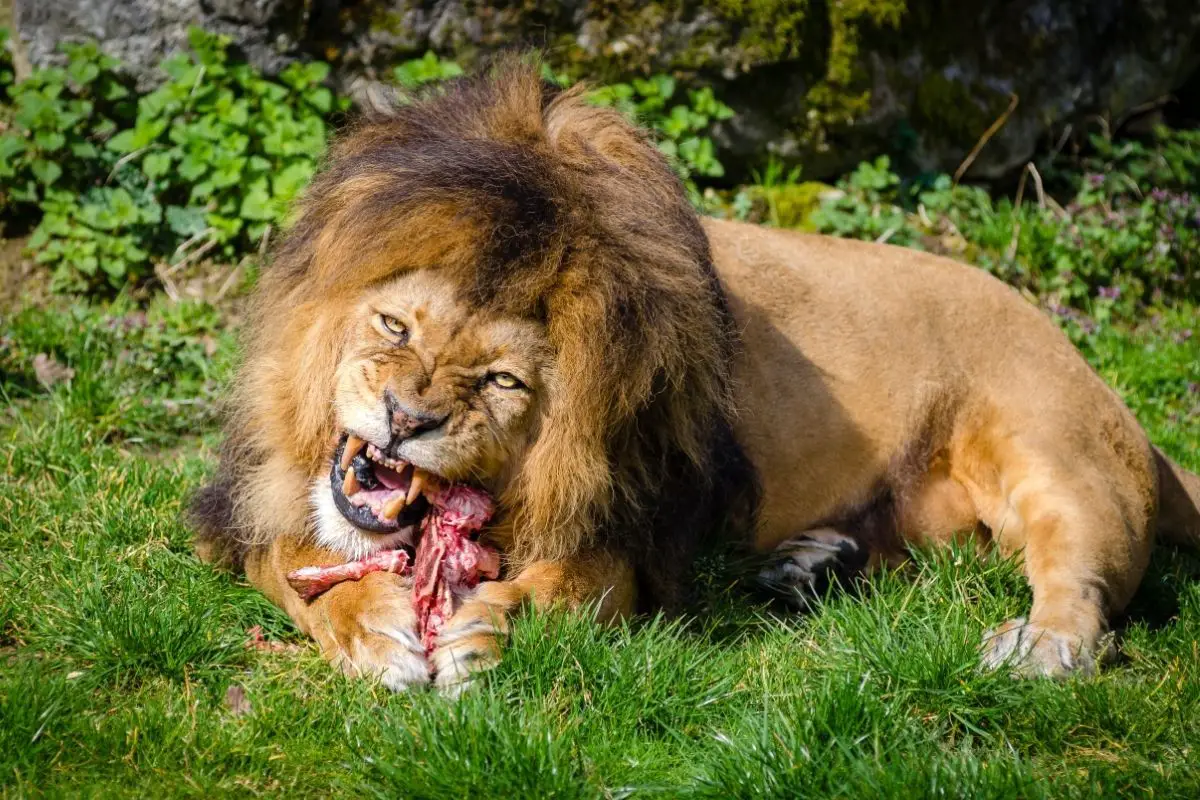Updated: July 2025
The relationship between hyenas and lions is one of Africa’s most fascinating predator dynamics. While The Lion King portrayed hyenas as villainous scavengers, the reality is far more complex and surprising.
Hyenas are skilled hunters and opportunistic feeders who primarily hunt antelopes, zebras, wildebeests, and gazelles. However, their relationship with lions involves intense competition, territorial disputes, and yes—sometimes hyenas do eat lions under specific circumstances.
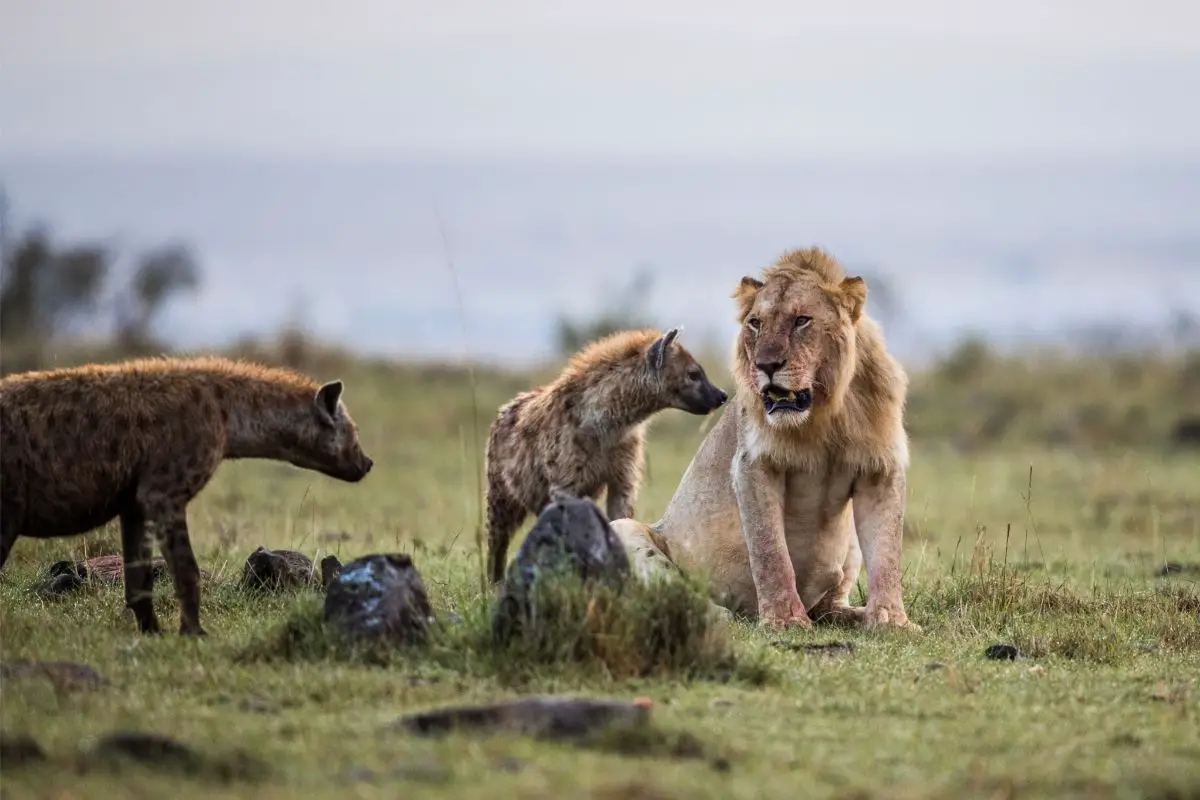
These highly intelligent carnivores live in matriarchal societies and are fiercely territorial. Understanding their hunting capabilities and dietary preferences reveals the surprising truth about their interactions with the so-called “king of the jungle.”
Hyenas: Master Hunters, Not Just Scavengers
Contrary to popular belief, spotted hyenas are excellent hunters, not merely scavengers. Their hunting success rate reaches an impressive 80-90%, significantly higher than lions’ 20-30% success rate.
Key hunting advantages include:
- Exceptional senses: Can detect carrion from up to 4 kilometers away
- Powerful bite: Bite force of 1,100 PSI—stronger than lions (650 PSI)
- Endurance: Can maintain speeds of 50-60 km/h (31-37 mph) for extended periods
- Pack coordination: Hunt in groups of 5-20 individuals with sophisticated strategies
Their powerful jaws can crush bones that other predators cannot, allowing them to consume 90% of their prey compared to lions’ 60%. This efficiency makes them formidable competitors in the African savanna.
Hyena Diet: More Than Just Meat
Hyenas are opportunistic omnivores with a varied diet:
Primary food sources:
- Fresh kills (70% of diet): Wildebeest, zebra, antelope, buffalo calves
- Scavenged meat (20%): Including lion kills when opportunity arises
- Other foods (10%): Fruits, vegetables, insects, eggs, fish
During dry seasons or when prey is scarce, hyenas become more aggressive in competing with lions for food sources. This competition often leads to direct confrontations between the species.
Do Hyenas Hunt Lions?
The answer is nuanced. Hyenas rarely hunt healthy adult lions, but they do target lions in specific situations:
When Hyenas Target Lions:
- Vulnerable cubs: Groups of 6+ hyenas may attack lion cubs when mothers are absent
- Injured or sick lions: Weakened lions become viable targets
- Elderly lions: Aging lions past their prime are at risk
- Outnumbered situations: Large hyena clans (20-30 individuals) may overwhelm 1-2 lions
Why Adult Lions Are Usually Safe:
- Size advantage: Adult male lions weigh 190-225 kg vs. hyenas’ 45-65 kg
- Superior weapons: Powerful claws and canine teeth
- Fighting experience: Lions are specialized for combat
- Pride protection: Lions rarely travel alone
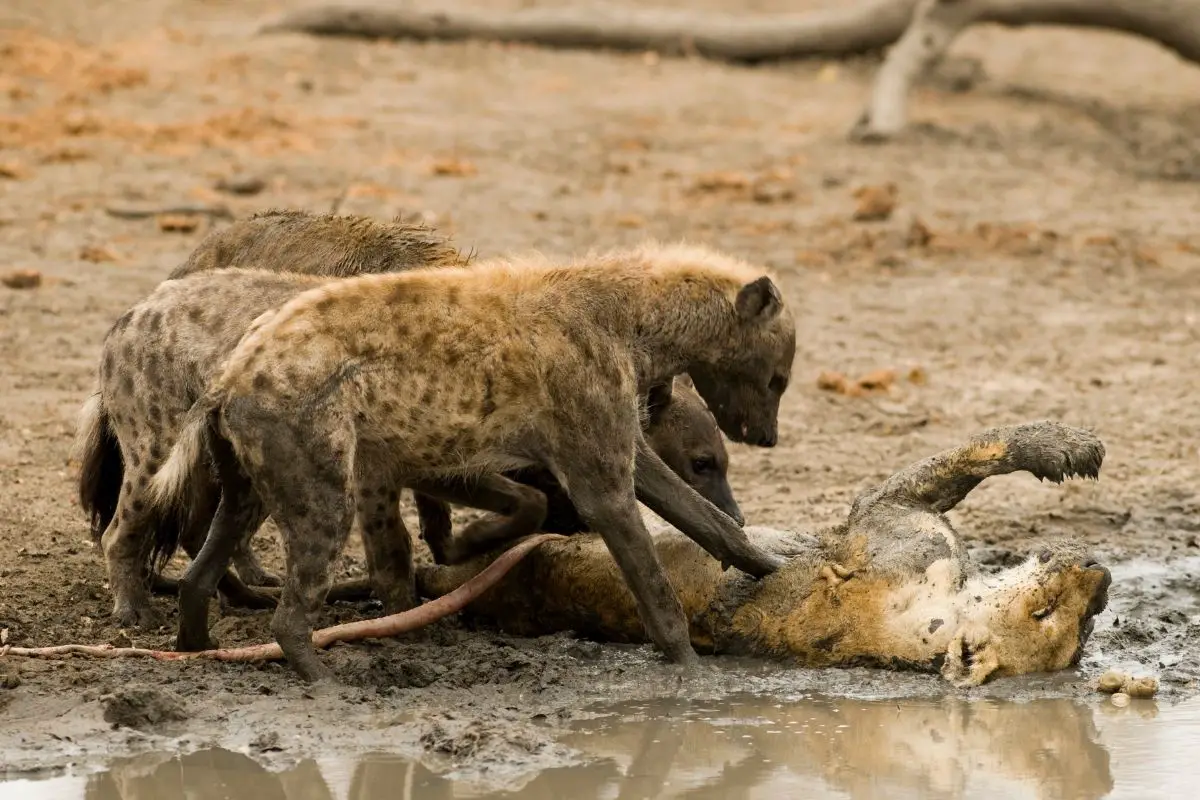
Do Hyenas Eat Lions?
Yes, hyenas do eat lions—but it’s complicated. Here’s when it happens:
Scenarios Where Hyenas Consume Lions:
- Scavenging dead lions: Natural deaths, territorial fights, or human-lion conflicts
- Successful hunts: When large clans overwhelm vulnerable lions
- Kleptoparasitism: Stealing and consuming lion cubs during raids
- Opportunistic feeding: Injured lions that cannot defend themselves
Nutritional Benefits:
Lions provide high-quality protein and essential nutrients. A single adult lion can feed an entire hyena clan for several days, making it a valuable—if rare—food source.
Can Hyenas Kill Lions?
Individual hyenas cannot kill healthy adult lions. However, coordinated clan attacks can be lethal under the right circumstances.
Hyena Limitations:
- Bite-and-retreat strategy: Lack killing claws like lions
- Smaller size: Individual hyenas are significantly outmatched
- Defensive tactics: Rely on harassment rather than direct confrontation
When Hyenas Successfully Kill Lions:
- Numerical advantage: 10+ hyenas vs. 1-2 lions
- Coordinated attacks: Simultaneous strikes from multiple angles
- Exhaustion tactics: Wearing down lions through prolonged harassment
- Targeting vulnerabilities: Focusing on pregnant females, cubs, or injured individuals
Hunting Strategies: How Hyenas Take Down Lions
When hyenas do target lions, they employ sophisticated pack hunting tactics:
The Coordinated Assault:
- Encirclement: Hyenas surround the target lion(s)
- Distraction: Some hyenas create diversions while others attack
- Bite-and-retreat: Inflict wounds while avoiding lethal retaliation
- Exhaustion: Continue until the lion is too weak to fight
- Final assault: Deliver killing bites to neck and throat
Targeting Strategy:
Hyenas typically target the hindquarters and belly to immobilize prey, then move to the throat for the killing bite. Their powerful jaws can crush vertebrae and windpipes effectively.
The Lion-Hyena Competition in 2025
Recent research shows that climate change and habitat loss are intensifying lion-hyena conflicts:
- Reduced prey availability increases competition
- Overlapping territories force more frequent encounters
- Human encroachment pushes both species into smaller areas
- Water scarcity creates conflict at water sources
Conservation efforts in 2025 focus on maintaining sufficient prey populations to reduce interspecies competition.
The Bottom Line
Hyenas do eat lions, but it’s not their preferred prey. These intelligent predators are opportunistic hunters who will target lions when circumstances align—particularly vulnerable cubs, injured adults, or during large clan attacks.
The relationship between hyenas and lions represents one of nature’s most complex competitive dynamics. Rather than simple predator-prey relationships, these species engage in intense competition for resources, territory, and survival.
Key takeaways:
- Hyenas are skilled hunters, not just scavengers
- They rarely hunt healthy adult lions but target vulnerable individuals
- Large hyena clans can overwhelm lions through coordinated attacks
- Climate change is intensifying their competitive relationship
Understanding these dynamics helps us appreciate the complexity of African ecosystems and the remarkable adaptations of both species.
- Sink Your Teeth Into This: Analyzing the Powerful Lion Bite Force - September 8, 2023
- Siberian Tigers: Everything You Need To Know - September 4, 2023
- Do Lions Eat Humans? Understanding Lion Aggression and Risks - September 4, 2023

